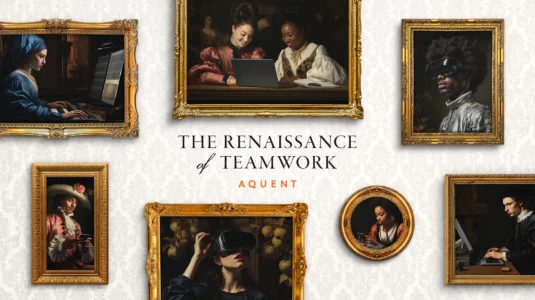

Listen: Think a tedious job interview process is the norm? It doesn't have to be.
Have you read the recent article in Vox about the realities of today's job interview process? It paints a rather alarming picture—interview assignments so comprehensive that they amount to working for free, seven rounds of interviews culminating in an impersonal rejection email, forgetting to even inform a finalist candidate that they didn't get the job.
That's not to say that managers don't have the right to be selective when hiring a new employee. But these kinds of experiences send some very clear signals to candidates—that many employers aren't clear on what they're looking for, they're not confident in their hiring decisions, and they don't really care about candidates.
Think about it this way. The person you eventually bring on board will experience your hiring process, good or bad, as the first impression of your company. Some people may chalk it up to the cost of getting a new job these days. Others, particularly the most in-demand talent, may bow out of the hiring process or even decline an offer if their experience was negative.
How can we design a more effective hiring process? A better hiring process is one that is more efficient, effective, and fair. The process should be designed to identify the best candidates for the job, and be conducted in a way that is respectful and considerate of the candidates.
Making your interview process a positive one isn't necessarily difficult. It just takes a bit of planning and thoughtfulness to get it right. Here's how:
Get clear on what you're looking for and how to assess it
Make sure your job description accurately reflects who you need
- Be reasonable about the required skills and experience for the position.
- Include the soft skills that are critical to success in the role.
- Understand the competencies your company prioritizes and make sure they are reflected in the job description as well.
Design your interviews to vet candidates against that job description
- Create a structured interview guide around the job description that evaluates the skills, experience, and competencies of each candidate.
- Use behavioral interview questions to help you predict a candidate's future performance.
- Consider panel interviews, which give everyone on the hiring committee access to the same information about each candidate.
Put yourself in your candidates' shoes
Be respectful of the candidates' time and efforts
- Before interviews begin, get commitment from those on the hiring committee that they'll be flexible and move other meetings to accommodate the candidates' schedules.
- Use scheduling tools like Calendly or GoodTime to minimize back-and-forth coordination of multiple calendars.
- Don't reschedule interviews unless absolutely necessary.
- Try scheduling multiple rounds of interviews with promising candidates over a short timeframe—say one to two weeks—so you can make a hiring decision quickly and let other candidates move on.
- Work assignments can be a valuable part of the interview process. They can help employers to assess a candidate's skills and abilities, and they can also give candidates a chance to showcase their work. However, it is important to use work assignments in a fair and ethical way. Employers should not use work assignments as a way to get free labor from candidates. They should also make sure that the work assignments are appropriate in size and relevant to the job that is being applied for.
- Don't continue to interview someone if you are not serious about their candidacy.
- Promptly inform candidates when you've decided not to move forward. And make your outreach appreciative and personal. No form emails!
- Time box any skills assessments or assignments and keep them hypothetical when possible.
Make your interviews more inclusive
- Make sure you have a diverse group of interviewers on your hiring committee, particularly if you're using panel interviews.
- If your interviews are in person, use the elevator, not the stairs. You don't know a candidate's physical abilities and shouldn't make assumptions.
- Take the pressure off candidates to answer right away. Something like, “feel free to take a minute to think before you respond,” creates space for neurodiverse candidates to formulate what they want to say.
- Schedule breaks and adequate time to transition from room to room (or video chat to video chat).
So next time you're hiring for your team, ask yourself: Am I clear on who I'm looking for? Is my interview process actually helping me find them? And am I prioritizing the candidates along the way? Reflecting on these questions and being intentional about how you interview helps create a great experience for your candidates (and future employees).
Additional Resources
Did you find the tips and strategies in this article helpful? Learn more expert tips from our expert team of recruiters by visiting these resources:
- Want to learn the best way to interview a designer? This article goes into depth.
- Looking for useful creative interview questions?
- Check out these must-ask design interview questions.
- Peek at this article to find helpful leadership interview questions.
Related

Targeted advice for managers to prevent employee burnout.
Diversity, Equity & Inclusion, Managing & Leading Teams, Remote Work

Returned to the office? How to create an inclusive workplace.
Diversity, Equity & Inclusion, Managing & Leading Teams

Genuine flexible work is the key to equity and inclusion.
Diversity, Equity & Inclusion, Remote Work


